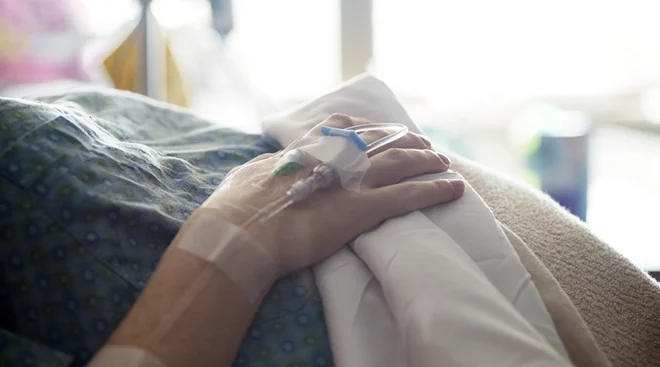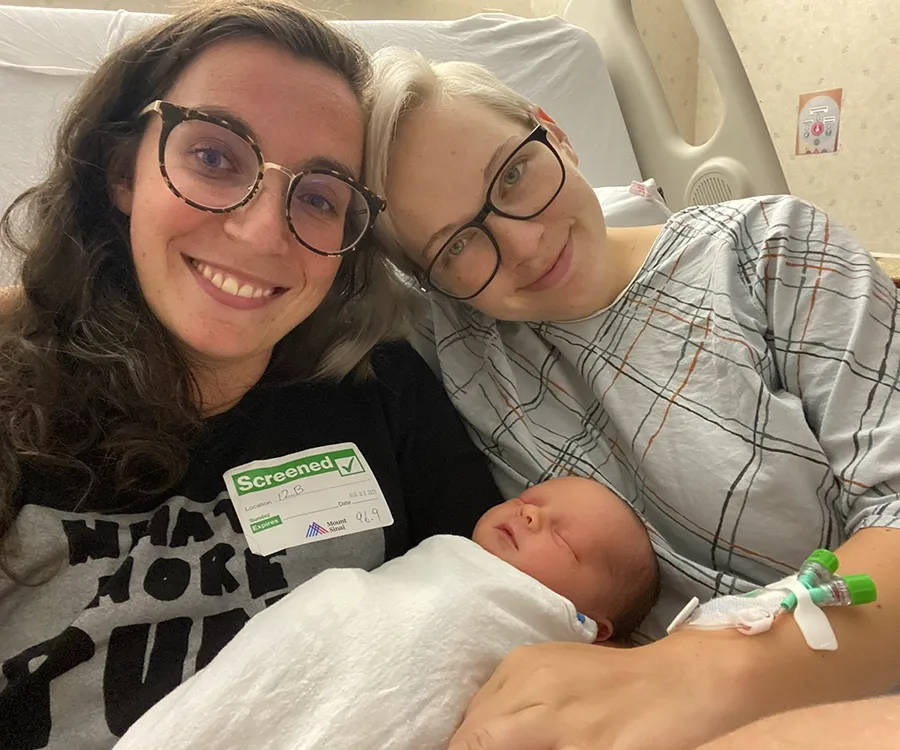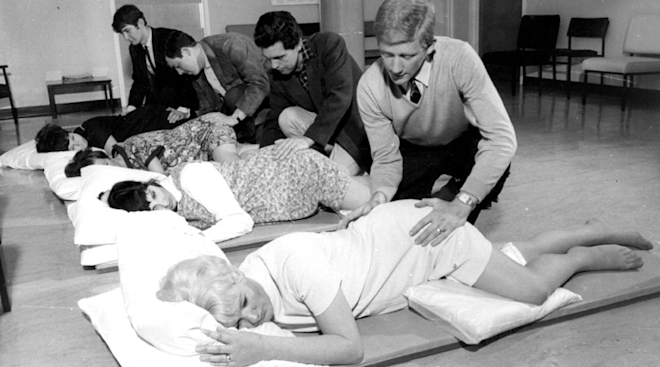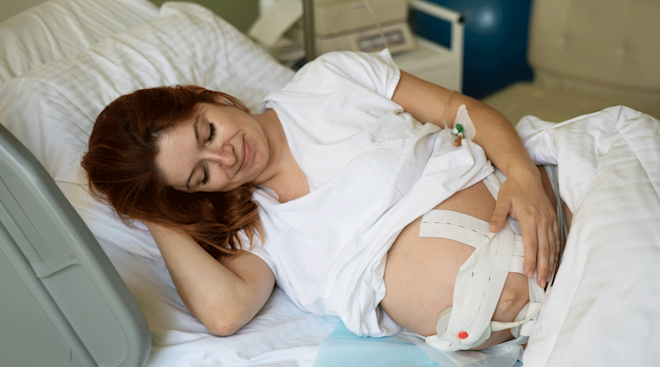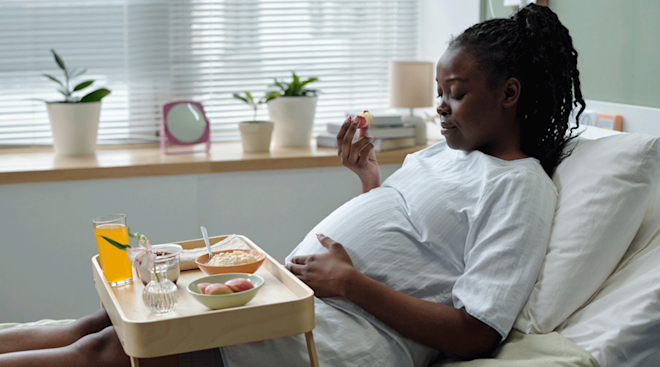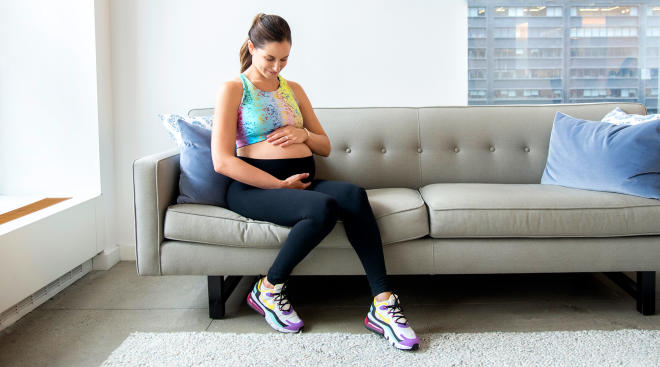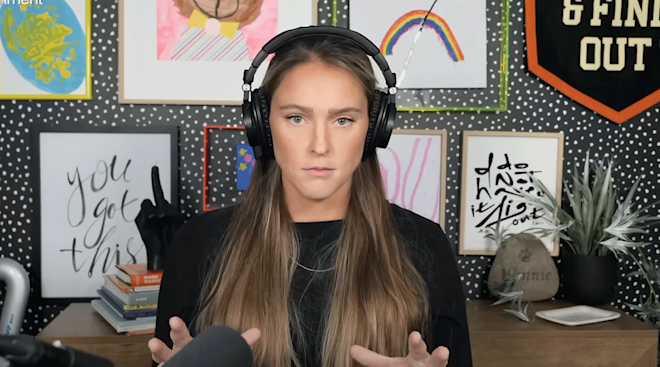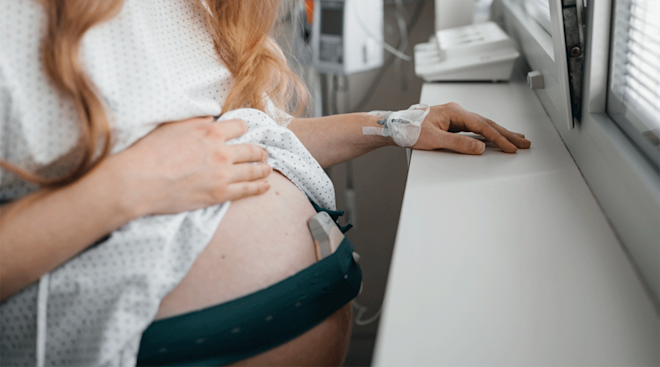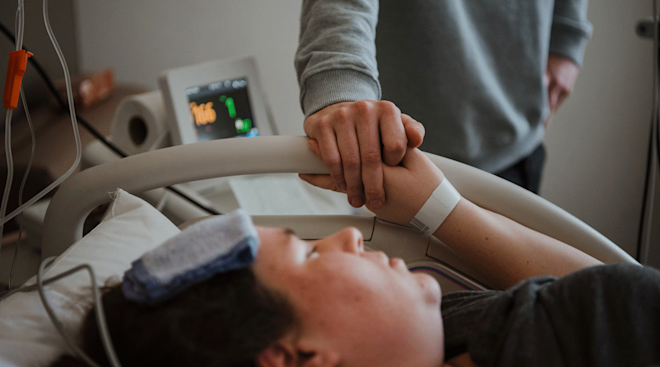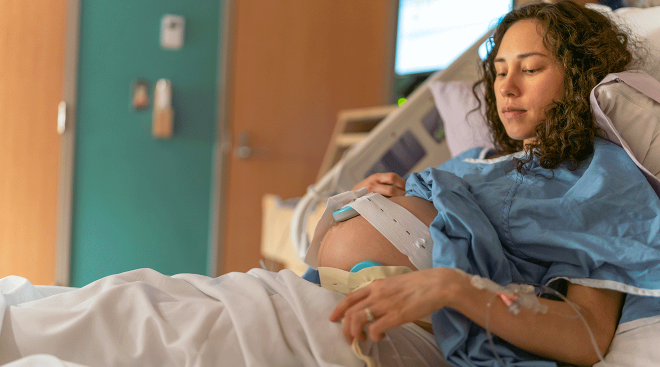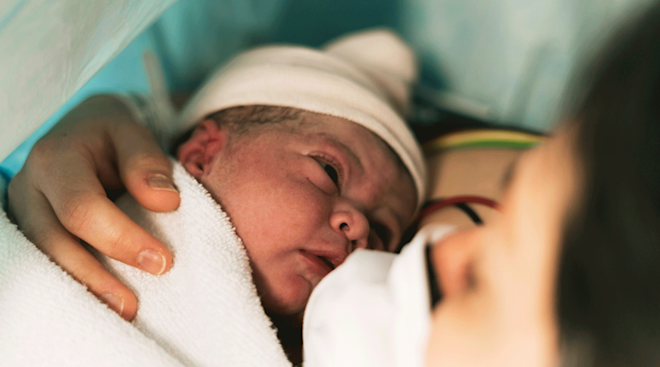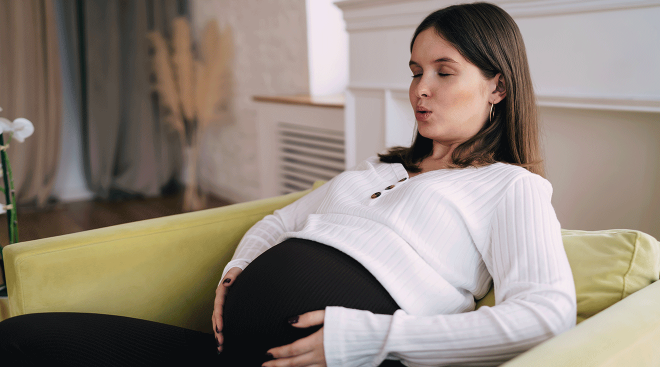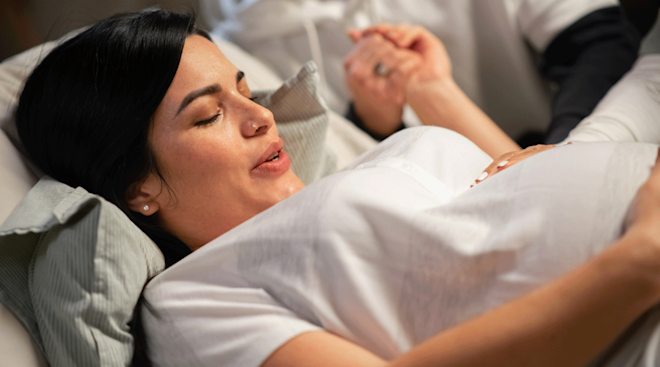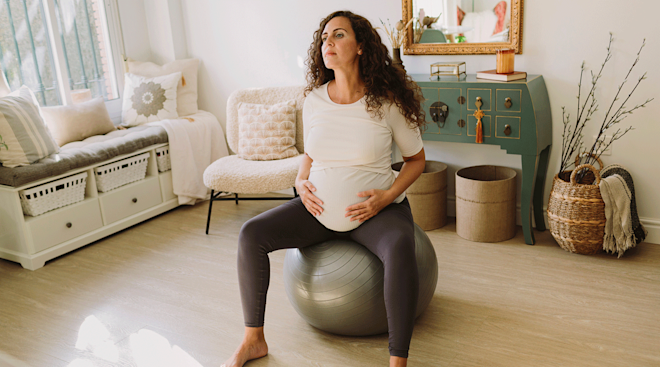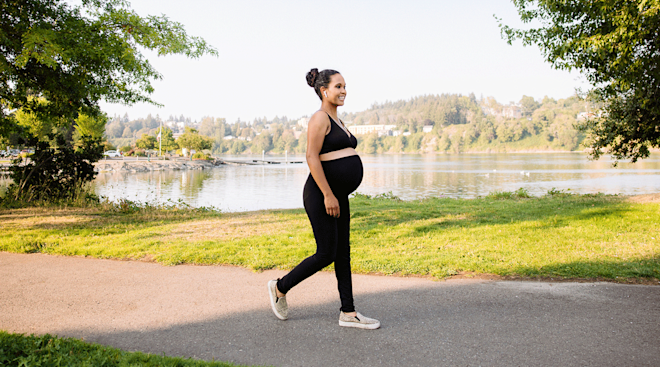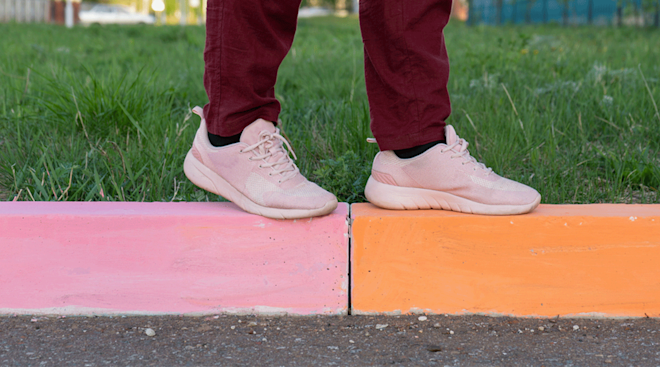How a Gay OB Made All the Difference in My Birth Experience
The day my son was born started with a mad dash to the midwife. We were late for a checkup, and my wife, Liz, was discovering the futility of telling someone who is 8 months pregnant to “hurry.”
When we learned the baby’s heart rate was high, I chalked it up to my stress. Still, our midwife said, we should go to the hospital—just to be safe. We nonchalantly arrived at Labor & Delivery carrying our iced coffees; but, within minutes, I was in a hospital bed, connected to fetal monitors, looking up at grim-faced doctors and nurses. It became clear that I was going to have my baby right then—via emergency c-section. Just as I started to panic, I noticed a man in a white coat perched on the edge of my bed. He put his hand on my knee and asked with a wink, “Did you ever think an old queen would be delivering your baby?” Fifteen minutes later, I was holding Remy in my arms for the first time.
Whenever I tell this story, the reaction is the same: “That sounds terrifying!” I can see how it could have been. Maybe it even should have been. But it wasn’t, thanks to the OB on duty. To our knowledge, he was the only other LGBTQ+ person we met in the process of bringing our son into the world. He made us laugh, and put us instantly at ease.
Up to that point, a number of doctors, nurses and random strangers had outed themselves as heterosexual, either through offhand comments or sheer ignorance. At our fertility clinic for blood tests, Liz looked at the vials in front of her. “My name and birthdate are right,” she told the phlebotomist. “But is it a problem that they say ‘male’?” (It was.) Another time, a receptionist tried to stop Liz from following me back into the exam room, mistaking her for a rogue patient. Forms asked about “the father” and the “emotional, marital, and/or sexual problems caused by your infertility.” “I don’t know if I’m infertile,” I wrote. “Just a lesbian!” Even then, we spent several months and thousands of dollars on invasive tests to be told by the experts that the reason we weren’t getting pregnant was that we were both women.
When it comes to LBGTQ+ family-building, law and policy have lagged behind changes in technology. While filling out paperwork for our donor—a friend who is also gay—I learned that the FDA prohibits gay and bisexual men from anonymously donating sperm. “So if you see ‘ineligible’ in big letters, don’t worry,” a sperm bank employee said. Despite advances in testing for diseases like HIV, the FDA also requires donor sperm to be “quarantined” for six months before use. “But if you get your sperm somewhere like California Cryobank,” our doctor cheerfully informed us, “it’s ready to go!” (“Get,” in this case, is code for “buy,” at anywhere from $800 to $1,000 a pop.) If a woman walked into our clinic with her boyfriend, they could start trying to conceive almost immediately. We had to hire lawyers, undergo genetic testing for everyone (including Liz, who wouldn’t be genetically related to the baby) and pay for an “optional” three-hour counseling session with a social worker who submitted her confidential report directly to our doctor.
If I thought things would get easier once I was pregnant, I was wrong. My original ob-gyn spent our first appointment peppering me with questions: Would we tell the child about their biological father? What if he had his own kids? Finally, I cut her off: “We have all the legal documents on file with the fertility clinic. Do you need copies here?” She seemed surprised: “Oh no. I’ve just always been curious how this works.” After that, I switched to a maternity care startup where they asked for our pronouns and greeted Liz warmly at every appointment.
Despite everything, we knew we were lucky. We’re white, cisgender and live in New York City. We could afford to laugh it off when our insurance company told us we had to pay out of pocket for intrauterine insemination (IUI) because it wasn’t “medically necessary” to conceive. When I called the fertility clinic distraught over the confirmation of Judge Amy Coney Barrett—who had refused to say whether she thought IVF should be legal—to the Supreme Court, they agreed to let our donor bank his sperm somewhere that would shorten the six-month quarantine. No one ever refused to treat us or said anything outright offensive, especially once we found our beloved midwives. Less than a month after Remy was born, a judge granted Liz full parental rights, a process made vastly easier by the fact that we’re legally married. Our experience was the best-case scenario, an impossible dream for LGBTQ+ families just a few generations ago.
Our son recently turned one. He’s happy, healthy and surrounded by people who love him so much it’s ridiculous. But while his arrival may not have been terrifying, this moment in America certainly is. The record high public support for marriage equality is little comfort when Justice Clarence Thomas argues that the Supreme Court should revisit the issue. The overturning of Roe v. Wade will make it even harder for LGBTQ+ people to access fertility treatment. The reality is that LGBTQ+ Americans face stigma, discrimination and worse outcomes in our health care system. One review found that roughly half of heterosexual first-year medical students reported negative attitudes about lesbian and gay people; it’s hard to imagine our political climate will improve this.
But on days when it all feels unbearable—when Liz and I are emailing our lawyer to ask what will happen if my home state of Wisconsin invalidates our marriage—I find myself remembering that calming moment in the hospital—that comforting gesture. We didn’t have to justify ourselves or fight for basic care. Our doctor gave us the gift of simply being two people whose lives were about to be turned upside down, as excited and nervous and unremarkable as any soon-to-be parents. That is how things could be. It’s how they should be. And maybe, one day, it’s how they will be.
About the writer: Lauren Peterson is a writer, strategist and the co-author of New York Times bestseller Make Trouble with Cecile Richards. After working on Hillary Clinton and Barack Obama’s presidential campaigns and for Planned Parenthood of America, she now consults for clients ranging from politics to maternity care to the arts. She lives in Brooklyn with her wife, Liz; her son, Remy; and their anxious dog, Basil. When she isn’t writing or defending the dog’s food from an intrepid toddler, she enjoys running the occasional marathon. You can find her on Twitter and Instagram at @Lcollinsp.
Plus, more from The Bump:
Navigate forward to interact with the calendar and select a date. Press the question mark key to get the keyboard shortcuts for changing dates.
































